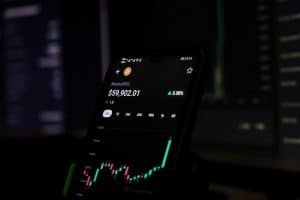Taxing the Metaverse: New Rules for Virtual Asset Transactions
The popularity of virtual worlds and blockchain technology has led to the emergence of the Metaverse, a digital realm where users can create, buy, and sell virtual assets. As more and more people engage in activities within the Metaverse, governments and tax authorities are now faced with the challenge of implementing taxation laws for these transactions. In this article, we will explore the current stance on taxing virtual asset transactions and the potential new rules that may be implemented for the Metaverse.
The Rise of Virtual Assets and the Metaverse
The concept of virtual assets has been around for decades, with the rise of online gaming and virtual economies. However, with the advent of blockchain technology and non-fungible tokens (NFTs), virtual assets have gained a new level of legitimacy and value. NFTs are unique digital assets that are powered by blockchain technology, making them secure and tamper-proof. These assets can range from digital artworks and collectibles to virtual real estate and even virtual pets.
The Metaverse, on the other hand, is a virtual world where users can interact with each other and the environment in a 3D space. Users can create avatars, socialize, and engage in various activities such as gaming, shopping, and attending events. As the Metaverse continues to grow and evolve, it is estimated that the virtual economy could reach a value of over $1 trillion by 2025.
The Current Taxation Laws for Virtual Assets
Currently, most countries do not have specific laws for taxing virtual asset transactions. This has resulted in a grey area when it comes to virtual asset taxation. In some cases, virtual asset transactions may be subject to capital gains tax, similar to other assets such as stocks and properties. For example, the Internal Revenue Service (IRS) in the United States has stated that virtual currency transactions are taxable, and taxpayers must report them on their tax returns.
Some countries, such as Japan, have taken a different approach by exempting virtual currency transactions from consumption tax. However, this only applies to virtual currency used as a method of payment, rather than those used for investment or speculation.
New Rules for Taxing the Metaverse
As the Metaverse gains popularity and becomes a significant source of income for some users, governments are starting to take notice and discuss potential new rules for taxing virtual asset transactions. One of the main challenges for tax authorities is determining the value of these virtual assets. Unlike traditional assets, virtual assets do not have a physical form, and their value can fluctuate greatly.
Virtual Asset Valuation
Some experts suggest that virtual assets should be taxed based on the market value at the time of purchase. However, this may be difficult to determine, especially for virtual assets that have appreciated significantly since their initial purchase. There is also the question of whether tax should be paid in traditional currency or virtual currency.
Another proposal is to tax virtual assets based on their in-game value. This would require game developers to assign a value to each virtual asset when it is created or acquired in the game. However, this method may also face challenges, such as game developers undervaluing certain assets to avoid tax implications.
Cross-Border Transactions
With the Metaverse being a borderless digital realm, cross-border transactions are also a concern when it comes to taxing virtual assets. The lack of specific laws for virtual asset taxation across different countries could result in double taxation for users engaging in cross-border transactions. To avoid this, there may be a need for international cooperation and agreements on virtual asset taxation.
Virtual Economies and Employment
As the Metaverse grows, so does the potential for users to earn a living within it. Content creators, event organizers, and even virtual real estate agents are just some of the professions emerging in the Metaverse. Taxation laws for virtual asset transactions could also extend to virtual income earned within the Metaverse. This would require defining the legal status of those employed in the virtual economy and determining their tax responsibilities.
In Conclusion
Taxing the Metaverse and virtual asset transactions is a complex and ongoing discussion. As the Metaverse continues to evolve, it is essential for governments and tax authorities to keep up and adapt their taxation laws accordingly. With the potential for significant revenue and innovation within the Metaverse, finding a fair and effective way to tax virtual asset transactions will require collaboration and balance between governments, developers, and users.
Disclaimer: This article is for informational purposes only and should not be considered tax or legal advice. Please consult a professional for specific tax advice.










